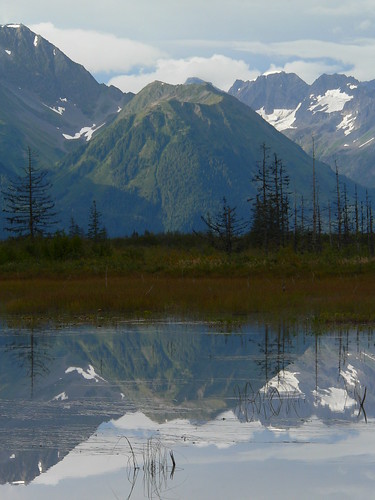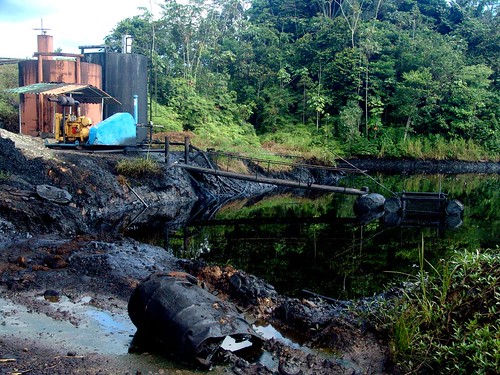
http://www.prelovac.com/vladimir/pretty-blue-planet
57 percent of Americans support drilling in offshore or wilderness areas (ALASKA which is currently off-limits to drilling) and 41 percent oppose the idea.
(I must add -in a separate study, 60 percent of Americans also support conservation).

My intuition tells me the following:
A) The 57 percent of people who support further drilling (hoping to ease financial cost at the gas pump) are likely to support the republican party in the next election. http://www.independent.co.uk/news/world/middle-east/saudi-king-we-will-pump-more-oil-847830.html
B) If drilling in Alaska goes ahead, output will only begin (in very small quantities) ten years from now in 2017... This would be far too late to change any prices on the global market. Nothing could happen any time soon and it would take 22 years from now to get a mere 200,000 barrels a day, something the Saudis are giving us as extra today.
QUOTE: The U.S. Energy Information Administration predicted last year that if the moratorium were lifted, it would take until 2012 to start leasing the areas and until 2017 before oil began to flow. The agency estimated that U.S. oil production would increase by 7 percent - about 200,000 barrels a day - by 2030, which it said would have an "insignificant" impact on oil prices.C) Oil production causes run offs from petroleum processing and petrochemical plants to dump tons of toxic wastes into nearby waters. Gas and oil pipelines will stanch many creeks and rivers swamping prime pastures and cropland. Furthermore, entire bays and lagoons along coasts will befouled by oil spills and runoff of toxic chemicals. This will harm the local wildlife. http://www.american.edu/TED/projects/tedcross/xoilpr15.htm#r2
http://www.guardian.co.uk/environment/2008/jun/19/fossilfuels.environment

Ecuador
Even if 200,000 barrels a day comes from Alaska in 22 years time, would this number of barrels per day significantly alter global prices? Last month, the Saudis increased oil output by 300,000 barrels (more than what Alaska would promise in 22 years) and the price of oil continued to go up.
http://www.sfgate.com/cgi-bin/article.cgi?f=/c/a/2008/06/22/MNEV11CIVI.DTL&tsp=1
Has this generation left things too late?
I urge anyone before supporting the short sighted vote of spoiling Alaska, to take note and see if 200,000 barrels from Saudi Arabia has any effect on prices at $134.86 today. If 200,000 barrels does lower prices, let's see for how long. I'm starting to pay close attention to numbers: http://ap.google.com/article/ALeqM5hXSgafSMJJNVDOrb5WF1H-T_kKngD91F8DA80
Indeed I see I was correct, the price of crude oil has already risen today by $1.29 to $136.15. http://news.bbc.co.uk/2/hi/business/7468555.stm
I will continue to propose our best solution now is to focus hard and fast (just as people did during the crisis of two world wars) on cutting down and substituting our non-renewable energy with renewable energy (smaller vehicles, better public transportation and less careless waste). Let us face it, if sensitive parts of Alaska are destroyed to try and bring oil to a cheaper price, we will only consume and waste more and this quantity would have little if any effect on global prices by 2030. The actual oil amount of oil estimated from Alaska is only enough to potentially power the USA for two years... then what? We're back to where we are now except the environment is messed up....
I always think of the smug guy who keeps an extra gallon or two of spare gas in case there was a real gas shortage. I say "great idea mate, but once you've used your spare supply, you're in the same boat as the rest of us" :)



No comments:
Post a Comment